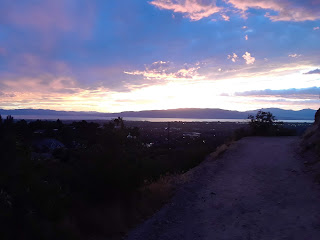 "Elect of Elohim," by Orson F. Whitney follows the pre-Earth and mortal life of Jesus Christ. It seems to be written in the Miltonian tradition, very obviously paying homage to Paradise Lost. Beginning with references to the council in heaven on the creation of the world, Orson F. Whitney addresses a thoroughly well-rooted LDS audience. This poem is not for the recent convert to Mormonism. He uses allusions to verses in an obscure book of LDS scripture at the beginning of the poem, as well as traditional Christian imagery (e.g. the lamb, gold-bought kiss) to create a concept of Christ that is very orthodox LDS. His purpose seems to be to evoke a highly emotional response in his readers.
"Elect of Elohim," by Orson F. Whitney follows the pre-Earth and mortal life of Jesus Christ. It seems to be written in the Miltonian tradition, very obviously paying homage to Paradise Lost. Beginning with references to the council in heaven on the creation of the world, Orson F. Whitney addresses a thoroughly well-rooted LDS audience. This poem is not for the recent convert to Mormonism. He uses allusions to verses in an obscure book of LDS scripture at the beginning of the poem, as well as traditional Christian imagery (e.g. the lamb, gold-bought kiss) to create a concept of Christ that is very orthodox LDS. His purpose seems to be to evoke a highly emotional response in his readers. I think my parents actually read this poem to me once during a family night. I remember not understanding the reference to "Elohim" as God, and misunderstanding the concept of Kolob (in LDS Christian thought, this is the star closest to the throne of God). I thought Kolob was essentially God's planet. By throwing in references like these, Whitney ensures that his audience will be one fully immersed in LDS doctrine and ways of thought.
Susan Elizabeth Howe's "Of the Beginning" is similar in nature and premise to Whitney's poem, but more personal. Rather than a celebration of Christ's eternal purpose, its focus lies in our personal pre-Earth lives and experiences, as we witness the creation of the world. Howe's focus on the individual seems to be pointing out the eternal nature of each and every soul. Her language is predominantly directed at women and seems to be trying to create a place for them within God's plan.
I like your observation about Elect of Elohim paying homage to Paradise Lost. I hadn't picked up on that at first but after you mentioned it I totally agree.
ReplyDeleteI really like what you said about both poems. Both succeed in conveying Latter-day Saint beliefs and perspective, but the focus on the individual in Susan Howe's poem also hints at the idea that because we are all children of God, we are each individually loved by Him. The poem says a lot about her beliefs.
ReplyDeleteThese poems are interesting because they seem to greatly differ in subject. The deeper doctrine of Kolob as well as our pre-existence are topics intriguing to study, let alone write poetry about them. It makes me wonder what these early saints were studying and being taught.
ReplyDelete